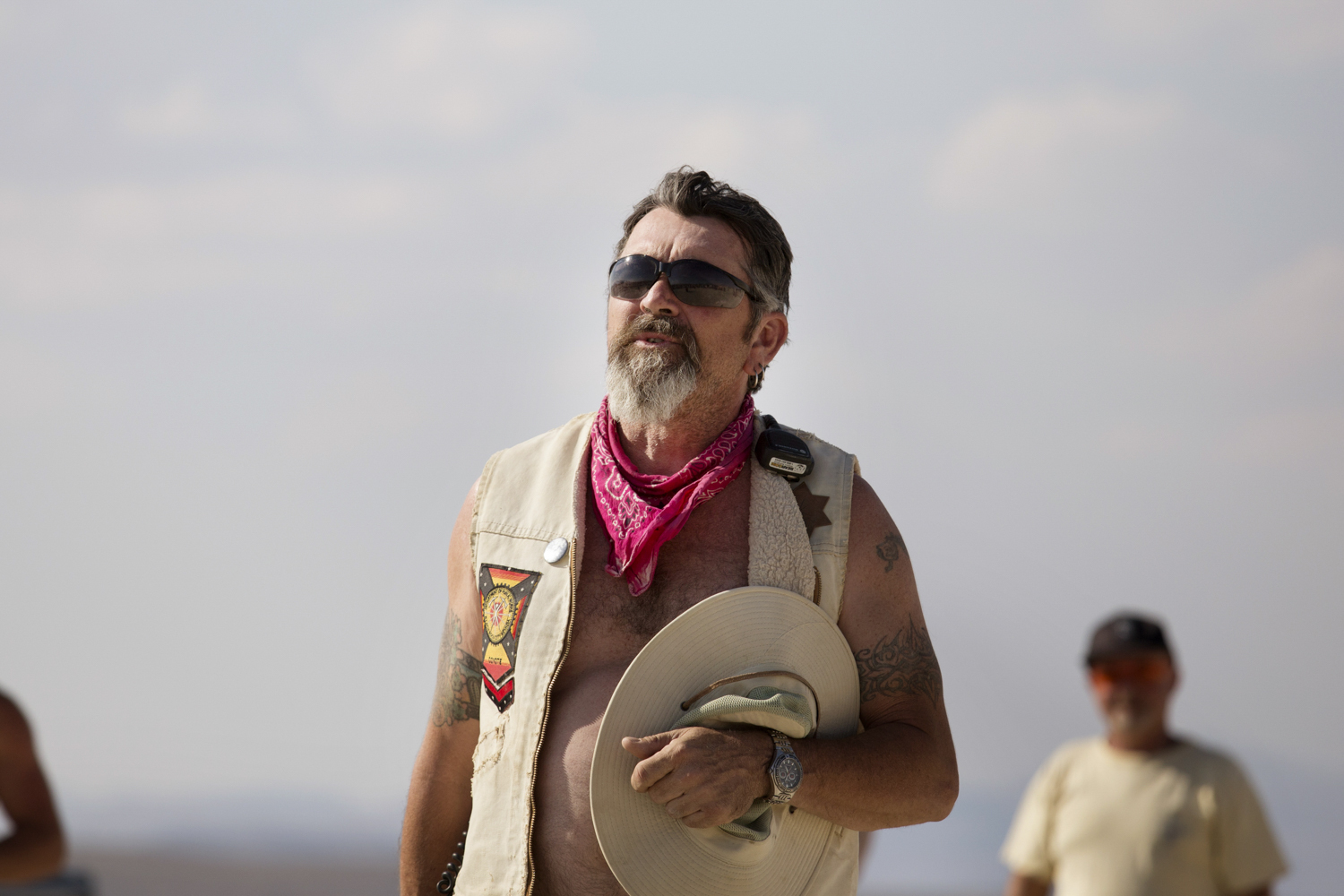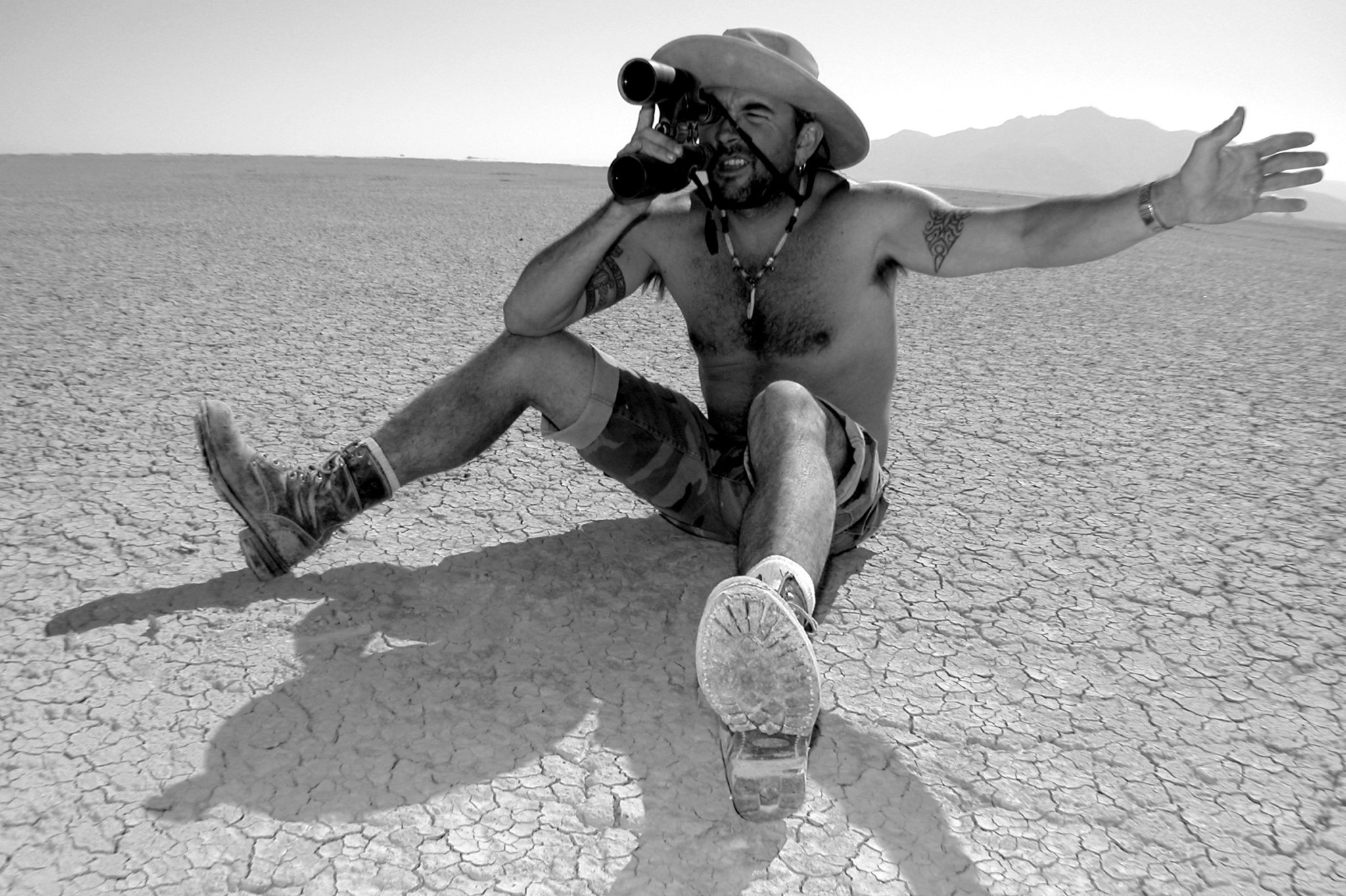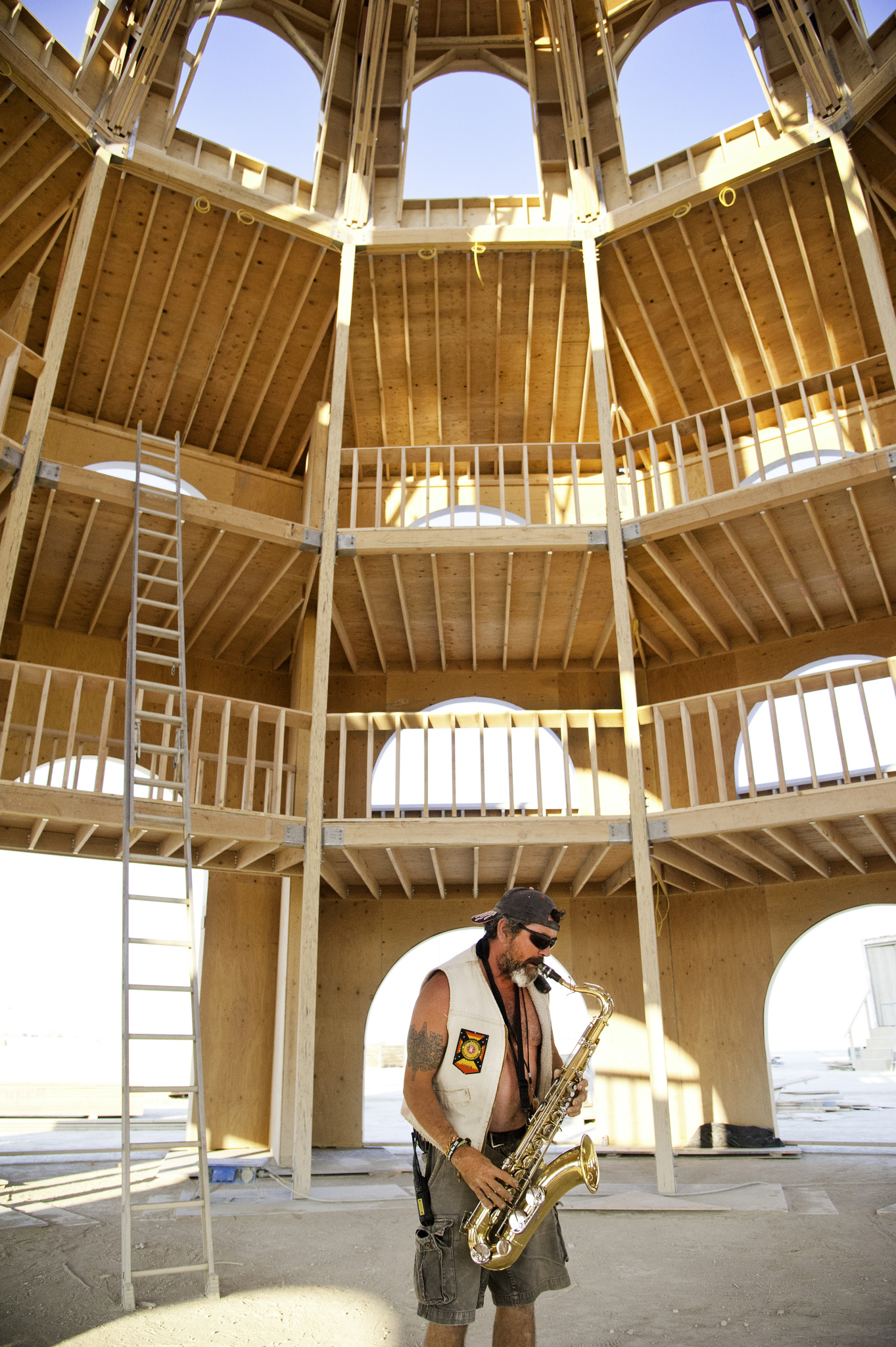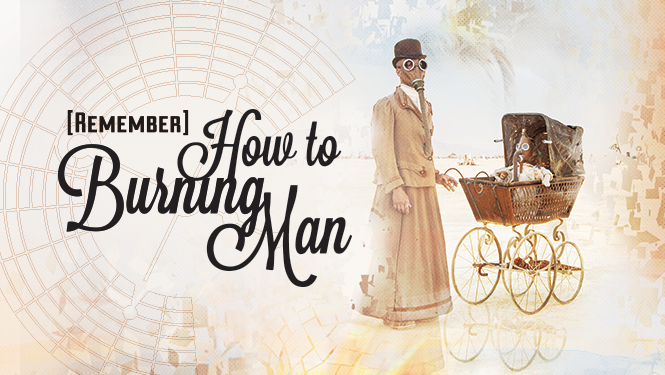Looking for a handy refresher on the burnerly arts? Feeling a little rusty or wet behind the ears? Whether 2022 is your first time going to Black Rock City or your gazillionth, we’re rolling out this series throughout the summer of Waking Dreams to acculturate and amuse with tips, tricks, and pearls of wisdom to help you thrive in Black Rock City.
Looking for a handy refresher on the burnerly arts? Feeling a little rusty or wet behind the ears? Whether 2022 is your first time going to Black Rock City or your gazillionth, we’re rolling out this series throughout the summer of Waking Dreams to acculturate and amuse with tips, tricks, and pearls of wisdom to help you thrive in Black Rock City.
Black Rock City stretches our capacities in weird and unanticipated ways. We gather a crew, make some plans, and go out there to build art or run a camp in one of the world’s most inhospitable environments. Even if you run crews or manage teams in your default life, getting things to happen as planned in the Black Rock Desert introduces some… unique… challenges.
No one has more experience with getting a ragtag gang of Burners to build impossible things than Tony ‘Coyote’ Perez, co-founder of Black Rock City’s Department of Public Works (DPW). We sat down with the Built to Burn author to get his tips on working with a crew of tired, dusty, distracted humans, and to learn why building a crew is like making a sauce.

Hello Coyote! First of all, who are you and what do you do at Burning Man?
My name is Tony Perez Banuet (pronounced Bonu’-way), but the author name is Tony ‘Coyote’ Perez. I’m the City Superintendent of Black Rock City, and actually the co-founder of Burning Man’s DPW (Department of Public Works).
When did your crew officially become the Department of Public works?
The first T-shirts came out in 1998. And also that was the same year as the first spreadsheet and the first actual tracked budget. So that makes it a department. But we were out there before that. I started in ’96 doing the same thing, but we weren’t an actual sanctioned department until 1998.
How did you find Burning Man? Or how did Burning Man find you?
I had a really, really good friend who I was bouncing around with in the Lower Haight district. I’d been on the road as a musician for… oh, 20-some years, playing Blues and being on the road with show bands. I was playing in North Beach and we became pretty good friends. He could see that I was in a bit of a creative rut and he said, “I know how you can blow the cobwebs out of your brain and out of your creative process.”
And so I said, “Sure, I could use a trip.” I threw a couple of backpacks in the back of my Mazda RX7 and blasted out there. He knew it was just what the doctor ordered. And indeed it was.
How do you feel about returning to Black Rock City in 2022?
After 25 years I was looking forward to a break. But I went out to the desert a couple of weeks ago. I drove out onto the playa… and that’s all it takes, really. Just to stand in that place, which is really another planet — it’s otherworldly. It’s magnificent. It’s hard to describe. It’s the smell, and the atmosphere, the air, the expanse. In my imagination, the city just sprung up around me like it’s always been there.
After all the years of doing the same routine, I really never got too excited about going out to the desert until I went out to the desert. I’m ready to go now. Just standing out there resurrected all the feels, and I’m ready to hit the desert running.
I wanted to talk with you to glean some wisdom about leading a crew in Black Rock City. A lot of us get out there with a bunch of people and we’re tired and thirsty and disoriented and suddenly we have to build a thing together. And so my first question is: why is it important to think about camp and crew dynamics on your way into Black Rock City?
That’s a really good question because everyone does it differently, but every camp is pretty much faced with the same thing. One thing I find in common with most crews is everybody, when they get out there, they feel like they’re really behind. And that is because we build the city from scratch every year. It’s a distinct advantage to do that because we don’t have to live with the mistakes that we learned from. I don’t know any other city that has that advantage.
People get out there and they see a blank canvas and they have sometimes three or four semis full of stuff. And they have a plan that’s been planned out very carefully. Some of these camps have 300 people in them. Some of them have 10. But they both have the same approach when they get there. They’ve been driving, some of those people, across the entire country and they have a lot to do. And so people tend to freak out a little bit.
In my own crew, I’ve seen it where we have to actually bring them down and say, “We are going to be able to get this job done.” I always tell everybody, ‘You’ve got to start with self care.’ I’m most concerned with my crew’s well-being.
You can feel when morale starts slipping. Sometimes a lot of different things affect morale. Everybody comes out of their vehicles with stories of what types of obstacles they had, the challenges that they had to face by driving across the country… We had people who showed up at the gate with their trailer actually on fire. They’re pulling a trailer into the gate and it’s on fire.
And so self care is my first piece of sagely advice. Make sure everybody is fed and they’ve got some sleep in ’em, and it may be time to put the beers down. It’s hard to work when you’re drunk. Even though the Department of Public Works has a very strong reputation for partying, when it comes down to actually building the city, we want to be clear-headed in the morning. We’re up on ladders, we’re running serious equipment, you know, there are saws and hammers and heavy equipment… cranes, forklifts running around.

How do you make sure a crew is going to mesh, personality wise. Are there tricks to managing crew dynamics?
As far as dynamics of crew, I really welcome having a wide spectrum of personalities. It really makes for a spicy sausage. Building a crew is like making a sauce. Sometimes you gotta have some pepper. Sometimes you have to have the broth. You have to have the spice. There’s the bones of the sauce, and then there’s the flavor—the top flavors. And sometimes sauces can get weird and crazy. And sometimes there’s too much pepper, and you find out those things when you get out there.
The thing that really is the equalizer: everybody’s working on the same project and everybody is putting up with the same bullshit, the strife, the same obstacles and challenges. That’ll bring even the hardest of situations together into one direction, if we can keep people focused on working together. And then it also helps to just know your crew and know the people.
Everyone usually has to figure it out on their own. I’ve seen a lot of different methods. I’ve seen camps up there with bullhorns: “People, everybody, we’ve got to get together now.” Myself, I usually sit down in the bed of a truck, and we don’t talk about the tasks right away. We tell a few stories and I’ll tell a couple of jokes. That will get everybody out of their funk, in a better mood, and then you can sort of guide the conversation. “Okay, well, what we’ve got to do today…” I am the leader because I have the plan that we’re all going to figure out together.
Are there any specific tips for a smoother build, to sort of grease the wheels?

Watch each other. Everybody, sooner or later, might find that time when they need to get down off the ladder. It’s a very frustrating thing we do out there. People melt down. One thing that we’ve gotten really good at across our crews — not just the managers and assistant managers, but the crew leads — we all get really good at conflict resolution after a while.
And if there’s any advice I can give: It takes half an hour — that’s an actual medical thing. If you’re melting down, your body is flooded with epinephrine and it takes a good half an hour for that stuff to work out of your system. If somebody is melting down, give them the space. They don’t have to be up on that ladder or they don’t have to be digging or trying to get the plumbing working on a sink. You know, we’ve got half an hour, let’s take a little walk or just chill out. We actually have a name for it, it’s called pickle and a nap. “Do you need a pickle and a nap?” That’s pretty much saying, “You need to get down and chill out.”
What do you do with a crew that you know is going to party, but they also have to get up early and work?
I’m not going to be their parents. I’m not out there to be Dad and go up and take a beer out of somebody’s hand and say, “You shouldn’t be having that beer. You’ve gotta be up on a ladder at 7am tomorrow.”
But if we have some people who start missing more and more days… If you show up still drunk or insanely hung over, we’re not going to put you out on a field or out on a crew, for safety’s sake. Not only are you exposing yourself to ending up in the ER, but you become somewhat of a dangerous worker.
Bottom line, we are doing dangerous work. We’re doing construction work in a very harsh and extreme place. So we really keep an eye on each other. We will find that if they don’t correct their own behavior on their own, because it really sucks to work in the heat with a hangover, then they wash out.
What advice would you have for a brand new lead who was bringing a crew out to Black Rock City for the first time?
I would tell them the same thing I said before: just chill, just go with it. You cannot lose your mind if it doesn’t go according to plan — because it’s not going to go according to plan. You have a lot of resources all around you. All of your crew, they all want this thing to happen. You will get the best ideas from the most unlikely places. Be receptive to those ideas and know that it’s not your camp, it’s everybody’s camp. If you’re in the lead position, it’s only because you have the plan and everybody is there to help you. So that would be my advice.
Any last nuggets of Burnerly advice to share?
When I was writing my book, one of the chapters I had titled City of Permission. I had this conversation with Stuart Mangrum about that concept. I could tell that he didn’t like the word permission.
I always thought it was the City of Permission ‘cause I’ve seen people go out there and they get to explore themselves in ways that they would not allow themselves to do in other situations. Because of the openness and because of several different parts of the equation, people feel that they have permission to do things.
So Stuart said, “Permission implies that you need permission from someone or something. And there’s nothing out there giving you permission. It’s just you out there.”
So we changed it to City of Possibilities. I actually had a reporter ask me, “If you could condense the experience of Burning Man down into one word…” One of those reporter questions. But I did come up with a word. It would be ‘endeavor’ — you go out there to work.
“Dear Mother” by Dan Burns, 2018 (Photo by Mark Nixon; Design by Deets Shay)


Solid. Good reminders. Good writing.
Report comment
✨
Report comment
I’m very glad that Burning Man comes with instructions on how to be a unique individual. I’m learning a lot about how to behave like everyone else.
Report comment
My experience might be very different from yours Joshua. What I’ve learned over the years of participating are things about being myself that I might not have learned otherwise. I don’t credit BRC with all of that – I’ve been doing the work, but it’s something I innately wanted and was able to find real traction for in the experience of working for The Man, and might not have found anywhere else.
Report comment
That sounds cool but it also sounds like a lot of work. It’s a lot easier to follow the crowd toward individualism. I’m busy most days & nights managing my GF’s social media accounts. I feel like if I just do this Burning Man thing once or twice I’ll achieve Nirvana, so at least I’ll have something going for me.
Report comment
Very on-brand. VERY on-brand.
Report comment
Good words – liked the 30 min meltdown rest- will use that for the camp this year.
Report comment
Comments are closed.